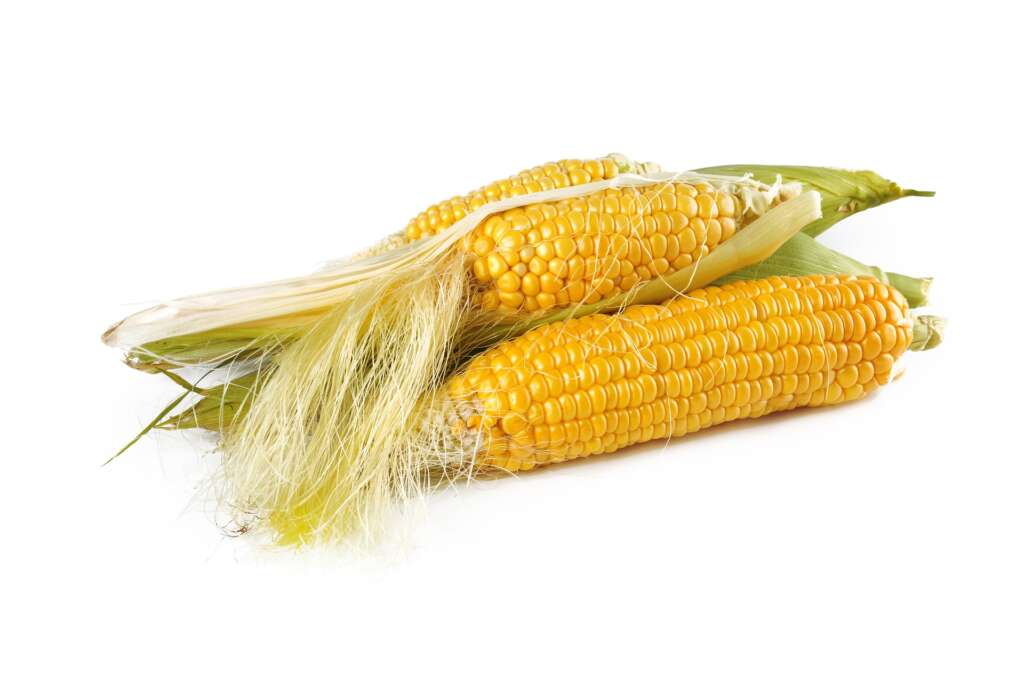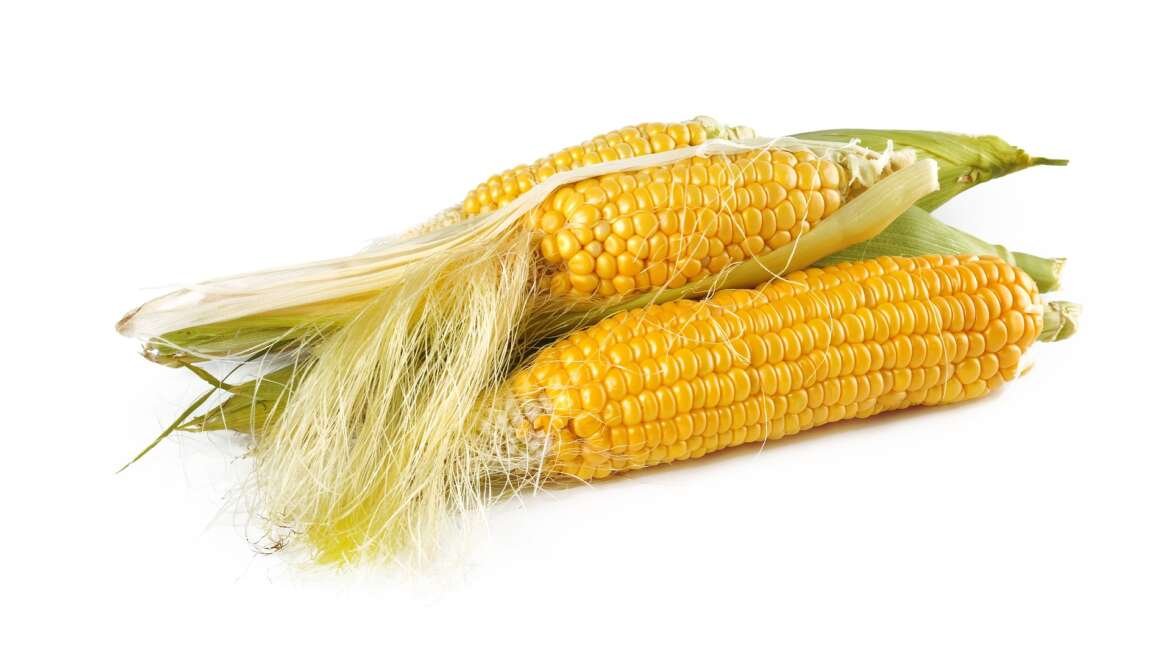Corn is a starchy vegetable and cereal grain that has been consumed for centuries all over the world.
It contains a lot of fibre, vitamins, and minerals.
However, corn’s health benefits are debatable; while it contains beneficial nutrients, it can also cause blood sugar spikes. Furthermore, the crop is frequently genetically modified.
This article examines the advantages and disadvantages of eating corn.


What exactly is corn?
Corn is classified as a vegetable as well as a cereal grain.
In the culinary world, sweet corn eaten off the cob is considered a vegetable, whereas the dry seeds used to make popcorn are classified as whole grains.
Corn originated over 9,000 years ago in Mexico and is still known as “maize” in many parts of the world. This crop was grown and harvested by Native Americans as a primary source of food.
It is now one of the most widely consumed cereal grains on the planet.
Corn is typically white or yellow, but it can also be red, purple, or blue.
It is consumed as sweet corn, popcorn, tortillas, polenta, chips, cornmeal, grits, oil, and syrup, as well as being added to a variety of other foods and dishes.
Furthermore, it is widely used as a fuel and animal feed. In fact, 40% of corn grown in the United States is used for fuel, and 60-70% of corn produced globally is used to feed animals.
High in Nutrients
Corn is high in carbohydrates and high in fibre, vitamins, and minerals. It also has a low protein and fat content.
One cup (164 grammes) of sweet yellow corn contains the following nutrients:
• Calorie count: 177
• Carbohydrates: 41 g Protein: 5.4 g
• 2.1 gramme of fat
• 4.6 grammes of fibre
• Vitamin C: 17% of the DV; • Thiamine (vitamin B1): 24% of the DV
• Folate (vitamin B9): 19% of the daily value; • Magnesium: 11% of the daily value
• Potassium: 10% of the daily value
The majority of the carbs in corn come from starch, which, depending on how much you eat, can quickly raise your blood sugar. It is, however, high in fibre, which can help balance your blood sugar levels.
Most people can benefit from eating whole corn and popcorn as part of a balanced diet because of their impressive nutrient profile. It is also naturally gluten-free and suitable for those who avoid gluten.
Processed corn products, on the other hand, may not be very nutritious because refined oil, syrup, and chips lose beneficial fibre and other nutrients during production. Furthermore, many processed foods contain a lot of added salt, sugar, or fat.
Plant Compounds and Fiber Provide Health Benefits
Corn contains antioxidants and plant compounds that may be beneficial to one’s health.
The presence of lutein and zeaxanthin may benefit eye health.
Corn contains a high concentration of lutein and zeaxanthin, two carotenoids that may help prevent cataracts and age-related macular degeneration (AMD).
This is most likely due to the fact that lutein and zeaxanthin make up a large portion of the macular region of your eyes.
One study of 365 adults found that those who consumed the most carotenoids, particularly lutein and zeaxanthin, had a 43% lower risk of developing AMD than those who consumed the least.
As a result, eating corn on a regular basis may benefit eye health, particularly for those at risk of AMD.
Diverticular Disease and Other Digestive Issues May Be Prevented
Corn fibre may also have health benefits.
Dietary fibre consumption has been linked to a lower risk of a variety of diseases, including heart disease and certain cancers. Furthermore, eating enough fibre promotes healthy digestion and may protect you from gut problems.
Corn, in particular, may protect against certain digestive issues, such as diverticular disease, which is characterised by digestive tract inflammation (15Trusted Source).
A study of over 47,000 adult men over an 18-year period found that eating popcorn at least twice a week was associated with a significantly lower risk of diverticular disease.
According to these preliminary findings, eating corn and popcorn may promote gut health and prevent digestive diseases. More research, however, is required.
Can Increase Blood Sugar and Prevent Weight Loss
Because corn is high in starch, it can cause blood sugar spikes and may not be suitable for some people.
Diabetics may need to limit their intake of starchy carbohydrates, including corn.
Although research on corn consumption and diabetes is limited, studies suggest that low-carb diets are more effective at managing diabetes.
A study of 115 adults with type 2 diabetes and obesity discovered that eating a diet with only 14% of calories from carbs resulted in more stable blood sugars and a lower need for medication when compared to eating 53% of daily calories from carbs.
Consuming fewer corn products, particularly high-fructose corn syrup, may help prevent diabetes.
According to one study, the prevalence of diabetes was 20% higher in countries with easier access to high-fructose corn syrup than in areas where the syrup was unavailable.
Finally, people who are trying to lose weight should limit their consumption of starchy carbs derived from corn.
Each additional daily serving of corn was associated with a 2-pound (0.9-kg) weight gain per 4-year interval in a 24-year Harvard study of 133,468 adults. Potatoes, peas, and other starchy vegetables had a lower impact on weight gain.
Corn is frequently genetically modified.
Corn is one of the world’s most genetically modified crops. In fact, 92% of crops grown in the United States in 2016 were genetically modified (GMO).
Corn crops are genetically modified to increase yield and resistance to insects, disease, and pesticides.
One of the most hotly debated topics in nutrition is the impact of genetically modified corn and other crops on human health and environmental safety.
The current state of knowledge about the safety of genetically modified corn for humans is limited and contradictory.
For example, studies have linked genetically modified corn consumption to toxic effects on the liver, kidneys, and other organs in animals.
Some research, on the other hand, suggests that genetically modified crops are not harmful to human health and provide the same nutrients as non-modified crops.
One study found no significant differences in the content of vitamin C, certain minerals, fatty acids, antioxidants, and other beneficial nutrients between genetically modified corn and non-modified corn crops.
More research is required to assist consumers in making informed decisions about eating genetically modified corn. If you are concerned about eating genetically modified crops, look for products with the “non-GMO” label.
In conclusion
Corn is high in fibre and plant compounds that may benefit digestion and vision.
However, it is high in starch, can cause blood sugar spikes, and may prevent weight loss if consumed in excess. Concerns have been raised about the safety of genetically modified corn.


Add Comment